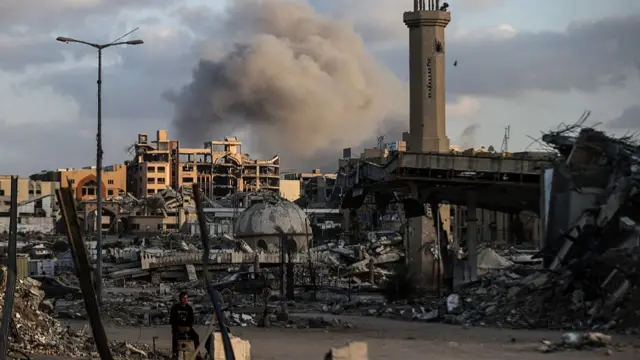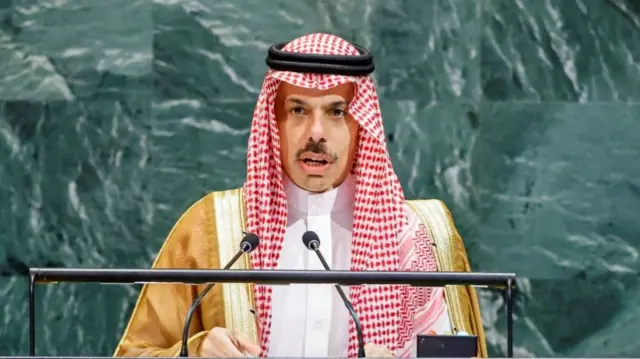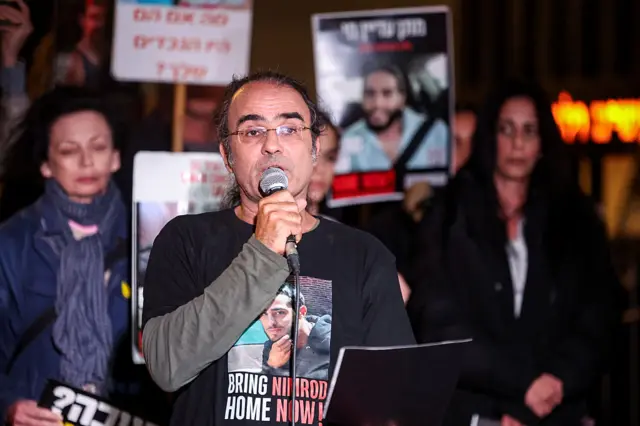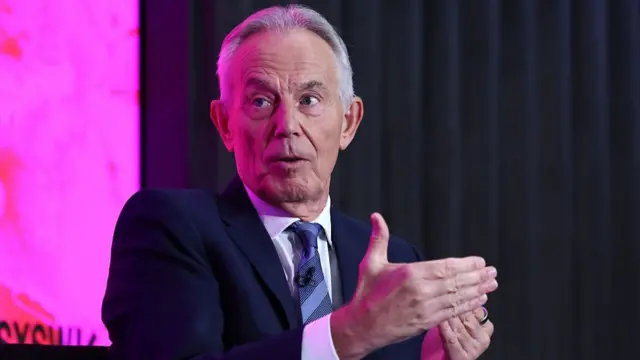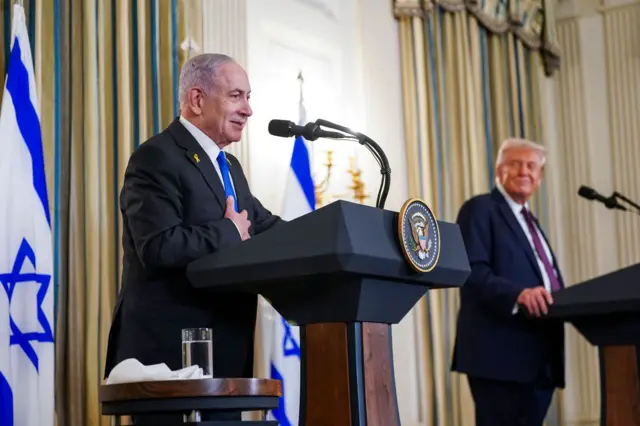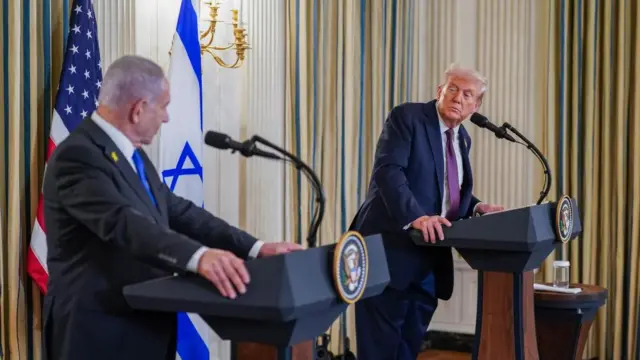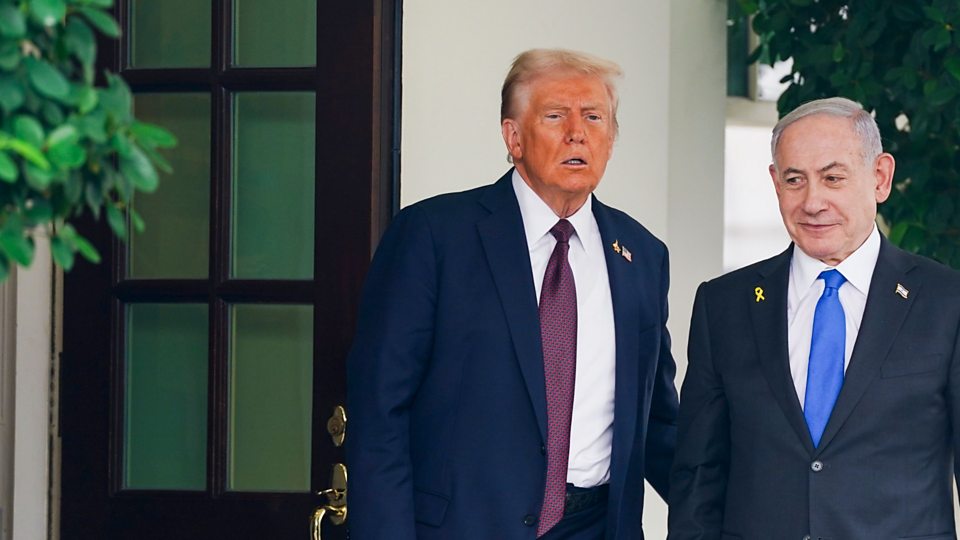
Not an end to the war, but a basis for restoring negotiationspublished at 00:03 BST 30 September
 Tom Bateman
Tom Bateman
US State Department correspondent
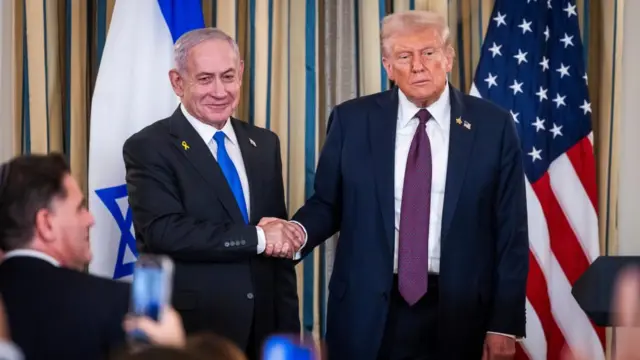 Image source, Getty Images
Image source, Getty ImagesTrump's 20-point plan for peace is not a detailed proposal for how to end the war and implement post-war governance for Gaza.
It is a framework, or "principles" as he put it, for further mediated negotiations. It's an all-in-one deal, calling for hostages and prisoners to be freed, partial Israeli troop withdrawals and then a governance and security mechanism for Gaza.
The outline is characteristically colourful, making Trump himself the chairman of the "Board of Peace" - he would effectively be the governor of Gaza.
But the substantial point of today was for Trump to get Netanyahu to agree to these principles while standing next to him at the White House.
We've heard that Israel is on board, and now it’s over to Hamas, whose officials, according to sources speaking to the BBC, hadn't seen a copy of the proposal until Monday evening.
The framework is a shift by the Trump administration, closer to the position the Arab and European countries want - most notably these plans ditch Trump's Gaza "Riviera" plan that he announced standing next to Netanyahu in the White House in February - which would have meant the expulsion of Palestinians that Israel's far-right longs for.
It is also vague enough on the idea of Palestinian self-determination for the Arab nations and Netanyahu to be willing to support, though Israel's far-right will complain.
But in many parts, the plan lacks clarity - some clauses are only a single sentence long - in exactly the areas where Israel and Hamas would argue over terms.
Hamas may now be pressured by Qatar and other Arab countries to accept the principles. But then the real negotiations have to be done.
In that sense, this latest development it is not an end to the war, but a basis for restoring negotiations.
- We are ending our live coverage of this proposed peace deal now, but you can keep up with the latest updates here: Trump and Netanyahu agree new US peace plan for Gaza
